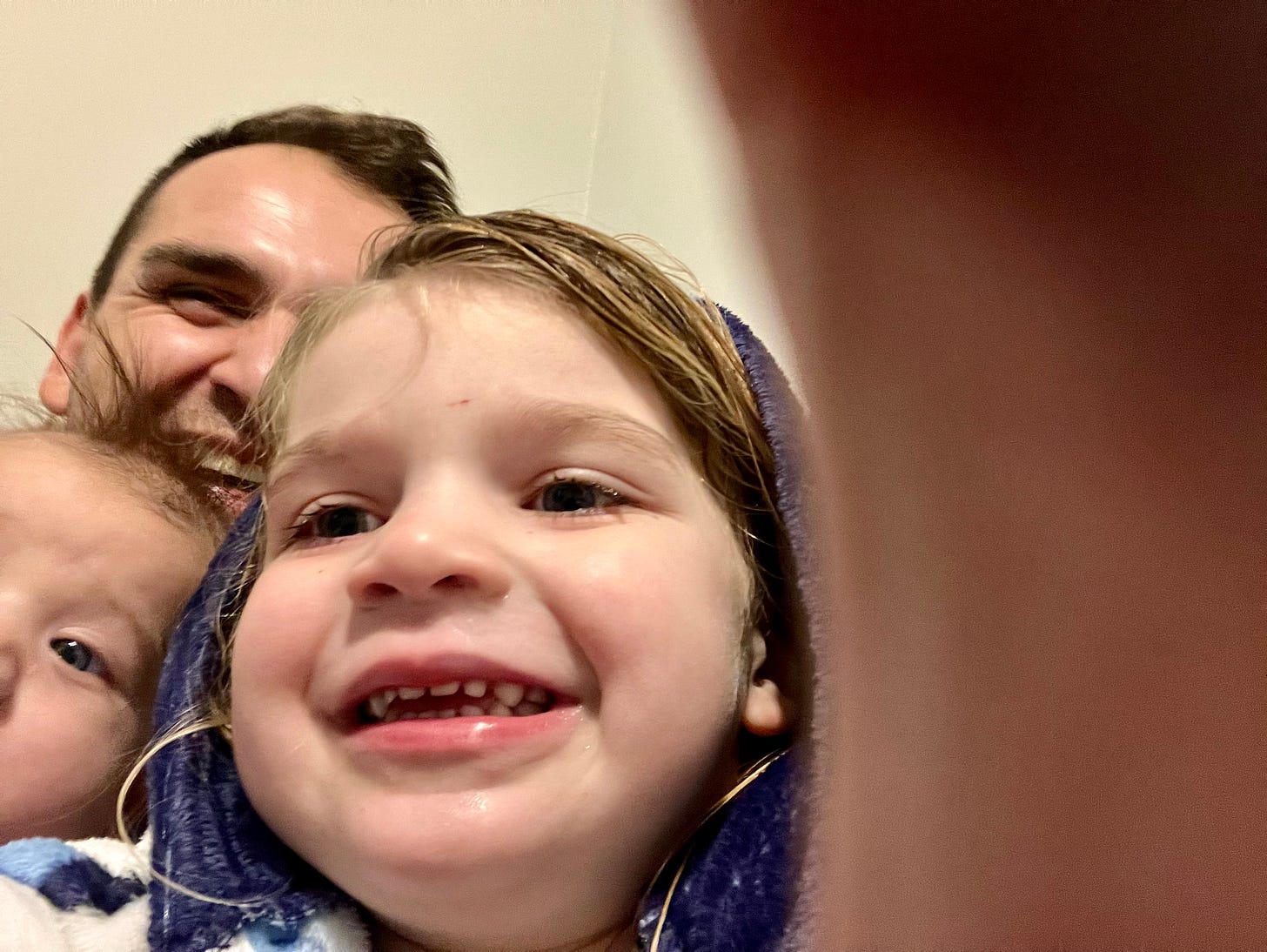I Guess I Should Announce This Today
My 35th birthday came with a real-life 'stranger than fiction' moment that may define the future of this Substack, my writing career, and my mental health.

This past weekend, I turned 35. And I wasn’t up for an hour on Saturday before I started feeling lousy about myself. Fortunately, Haley gifted me all morning and afternoon the day to write, so I got to Dunkin’ on Kingston Pike at 6:45 a.m. and started typing away in an empty Google Doc.
After I sent an email announcement out to you, my faithful readers, about my decision to add a paid option to this Substack, I spent the rest of the day library-hopping while trying to finish the first half of a story recounting the epic ping-pong rematch I played this past December against my eternal rival (more to come on this, stay tuned).
When I returned home at 4:30 p.m., Haley was in rough shape. She hadn’t wanted to interfere with my writing time, but the diseases my children had been spreading for the past month had finally gotten her. So we cut our date night short, settling for a quick meal at Bida Saigon and a stroll through the mall before getting home and in bed before 10.
This is how I know what happened next isn’t a dream.
When I woke up on Sunday, Haley was still half-zombie, so I took the bigger kids to church alone. Charlie Johnson, Ben Bannister, Michael Crowder, and Harrison Collins can all verify that I was there. By the time I got home three hours later, the kids were ready for lunch and a nap, so Haley and I fed them, got them down, and then she passed out with the baby on the couch while I descended the stairs to watch a movie in the den.
Not five minutes later, someone knocked on the front door. I knew that if I let them go longer than a round, Haley would wake up and I’d be in trouble. But there was something funny about the rhythm. The knocker didn’t follow the expected pattern: dut, dut-dut dut, dut…dut, dut. Instead, he knocked out the opening of the Super Mario theme song: dut-dut-dut, dut-dut, dut…dut.
“That’s exactly how I knock,” I thought.
Before Haley could yell down, I was at the door, expecting to be greeted by either a Mormon or a Jehovah’s Witness.
“Hey,” the stranger said, nodding.
The hair on my forearms stuck straight in the air. The stranger looked just like me—short, burly, wearing a dark flannel shirt, jeans, and scuffed-up sneakers. Except he was older, maybe 20 years older, with patchy five-o-clock shadow and thinning hair that clung for dear life to the top of his skull.
“I’m coming in,” he said before I could get my expression back to normal. And then he just pushed his way inside.
“Dude, my wife is sleeping…” I said before he interrupted.
“I know, I know, on the couch,” he said. “We’re going downstairs. Be quiet.”
“No, dude, you be quiet,” I said, shuffling to get in front of him. “This is my fricken house. Are you homeless or dumb?”
“You know who I am,” he said. “Let’s go.”
He signaled downstairs, hinting I should lead the way. Once at the bottom, I turned to face him. Before I could get a word out, he asked, “Is the dog still alive?”
“Gilda?” I asked, perplexed.
“Yeah, the brindle dog, the one you’ve had since you moved down here from Bayonne,” he said.
“Yeah, Gilda’s lying on the futon in my office,” I said.
“Let her over here,” he said. And then he whistled—phwee phweeeee! “You won’t have a dog again for a while,” he said. “I know you’re probably tired of this one, but she’s a good dog.”
“I know she’s a good dog,” I said. Gilda rustled from her sleep and joined us in the den. She stared at both of us, as bamboozled as I was.
“What the heck are you doing in my house?” I asked, annoyed. “Are you playing some kind of birthday joke for Mickey or Jeremy or something?”
Keep reading with a 7-day free trial
Subscribe to Storytime with Big Head to keep reading this post and get 7 days of free access to the full post archives.




